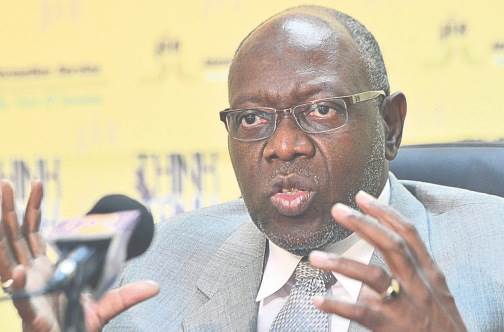- by Met
THERE is always a rise in intensity and a heightening of political fervour as the country prepares for a general election.
The struggle for State power is always a zero sum game. The election shaping up in Jamaica that will either take place in December or in January has precipitated a scrutiny of the health-care system. The tragedy of the deaths of 19 premature babies who succumbed to bacterial infection at the University Hospital of the West Indies and Cornwall Regional Hospital triggered a barrage of attacks at Dr Fenton Ferguson, the minister of health.
The journalists writing for both the Gleaner and the Jamaica Observer demanded the resignation of Dr Ferguson and later demanded the release of the full audit that Dr Ferguson had commissioned on the performance of public hospitals in Jamaica.
Not only did the media engage in this feeding of frenzy but the head of the Private Sector Organisation of Jamaica and the Jamaica Chamber of Commerce called for the “beheading” of Dr Ferguson. Suddenly, the Ministry of Health had become responsible and blamed for the century-old deficiencies that had plagued the public health- care system in Jamaica. Prime Minister Portia Simpson Miller obliged and Dr Ferguson was reassigned to the Ministry of Labour and Social Security. Mr Horace Dalley was placed on the firing line of the Ministry of Health.
In the feeding frenzy, what was lost was a meaningful discourse on the state of health in Jamaica. In some respects, the audit of the system which was commissioned by Dr Fenton Ferguson before the death of the 19 babies draws a vivid picture of the hospital deficits islandwide.
From reading the report, the recurring shortcomings encompass all the hospitals. Now, hospitals are managed not solely by the Ministry of Health but by senior staff at the respective hospitals. There are also four regional associations established in yesteryear to oversee and bring some level of coherence to hospitals from a regional perspective.
What the audit reveals is the weakness of the structure. The hospitals delivered some level of care, but they seem to run on automatic pilot. The suites where surgeries are performed lack proper lighting systems, doors were not properly closed and sanitary conditions left much to be desired.
The hospital cleaning products were not properly labelled. Bathroom facilities were missing, toilet seats and sanitary napkins were non-existent. The janitorial staff needed training. The schedules for cleaning were not documented and manuals were often in short supply.
The public health-care system was grossly under-resourced. The hospitals were built from a previous era and needed
much reconstruction. The demands on the system were greater than the capacity to deliver in an effective manner.
The emergency rooms were inundated with over 400,000 patients per year. Many sought emergency services for injuries sustained from accidents and from intended fisticuff. An inordinate number of folks were admitted for stabbings and from being hit with blunt objects. About 600 in 2013 were admitted for gunshot wounds but that was surmounted by the domestic squabbles that reflected the dialectics of the sub-culture of violence extant in the society.
Despite the seeming chaos of the public health system in 2013 — 26,666 babies were delivered in public hospitals, 79 per cent by natural birth and another 21 per cent by Caesarean birth. For that year, there were 17 deaths at birth. That is quite a remarkable record for a developing country.
The longevity of Jamaicans is 73.1 years. In a 2010 Jamaica Survey of Living Conditions, over 80 per cent of Jamaicans reported that they are in good health. Nonetheless, non-communicable chronic diseases are quite widespread among Jamaicans. Diseases such as hypertension, diabetes, arthritis and cardiovascular diseases are quite prevalent and are exacerbated by lifestyle that encourages the heavy consumption of white rice, white sugar, white flour and white rum.
One of Dr
Fenton Ferguson’s accomplishments as the minister of health is in conjunction with external partners with whom he developed a strategic plan to tackle the problem of these chronic non-communicable diseases. Recently, he signed an agreement with the European Union for funding to improve maternity practices in Jamaica.
Even more significant was his bold step to outlaw smoking in public places, except hotels, that took effect in July 2013. Each year, six million people worldwide die of diseases caused by tobacco smoke. Ten per cent of that six million are people who die of second-hand smoke. By this ordinance and the warning on cigarette labels, the former minister of health will have saved hundreds, if not, thousands of lives.
The audit clearly states that the practices for bacterial control were grossly inadequate in the nation’s public hospitals. It is also clear that the managerial oversight by the regional associations were not effective.
The departure of Dr Fenton Ferguson from the Ministry of Health should not be the end of the dialogue on health-care. This should be the beginning of a plan of action to fix the many deficits pointed out in the August audit. And when the emotions die down and the lynch mob is dispersed, we need to look objectively at what the Ministry of Health accomplished or failed to accomplish from 2011 to 2015.
The tragic loss of 19 babies has turned the spotlight on health care in Jamaica. The delivery of care can be administered more humanely but it will take new resources and a deepening of the dedication of all those who provide essential service in Jamaica’s health-care system.
Professor Basil Wilson, a Jamaican, is retired Provost of John Jay College of Criminal Justice in New York, and lectures at Munroe College, also in New York.

